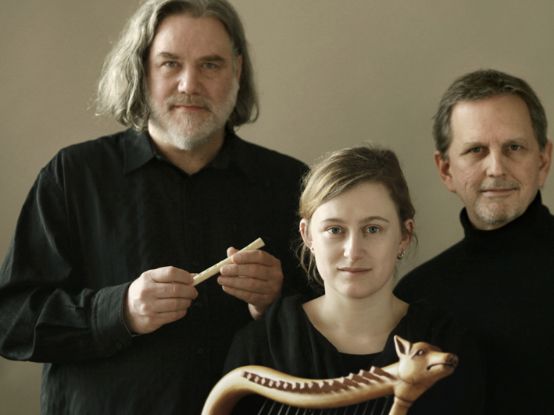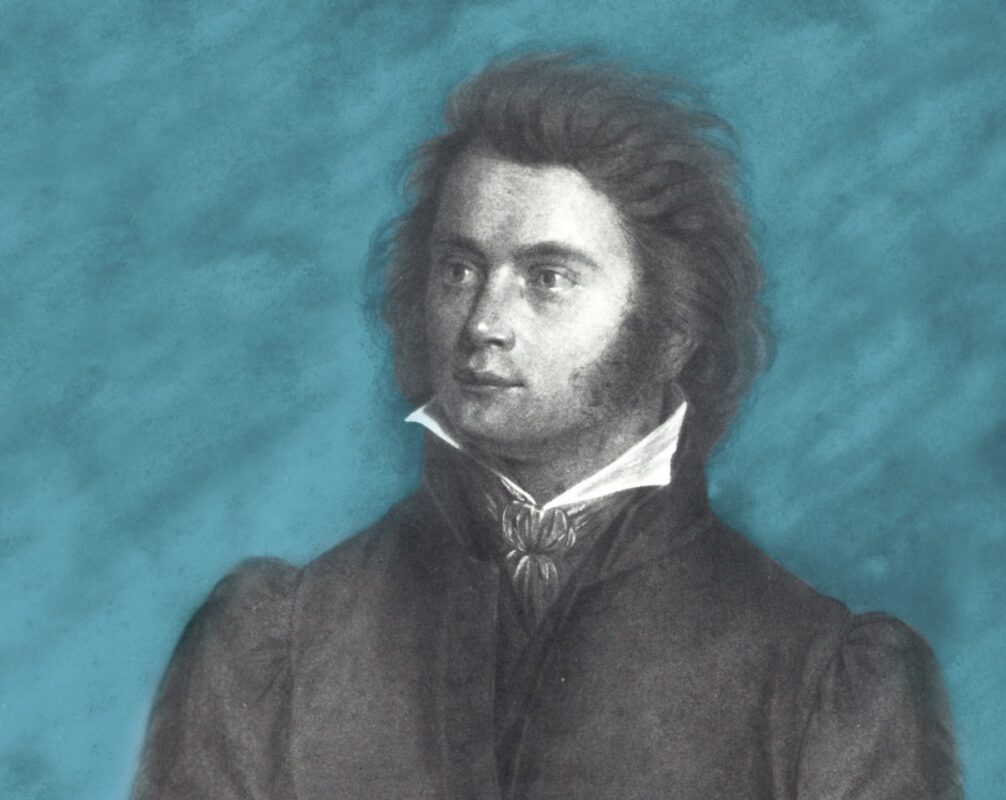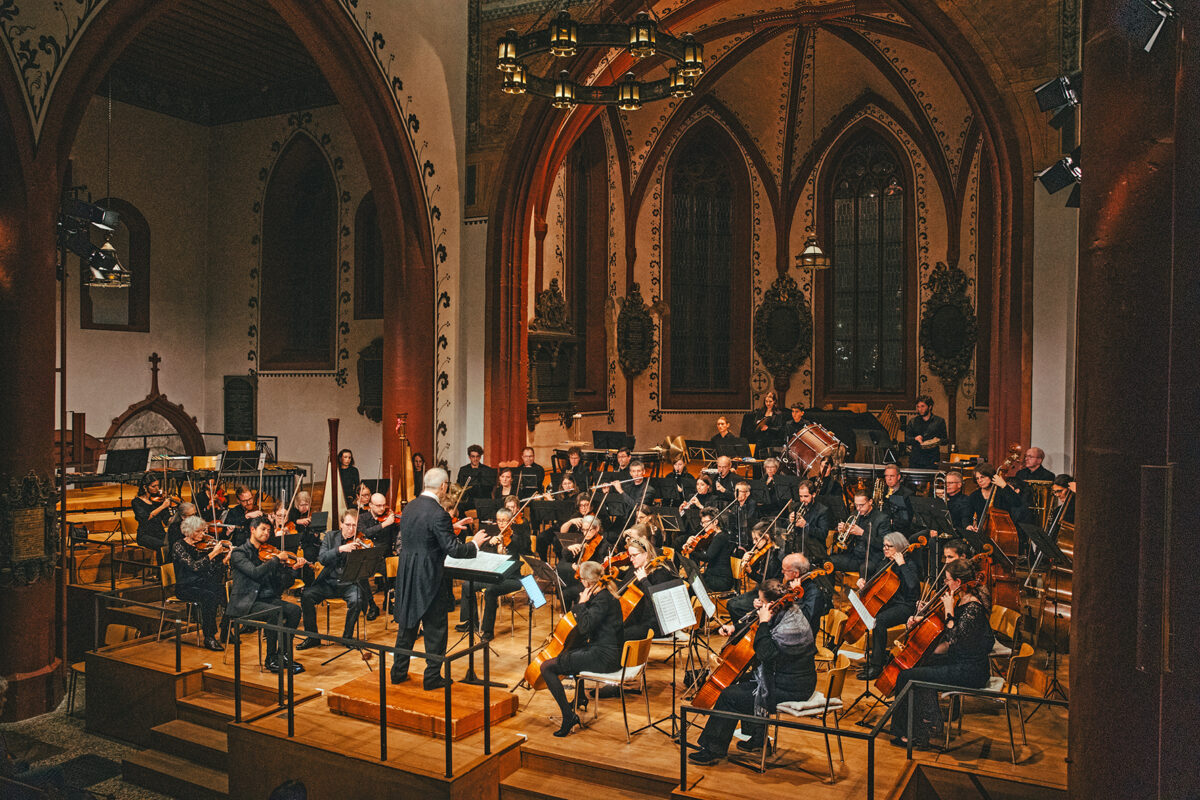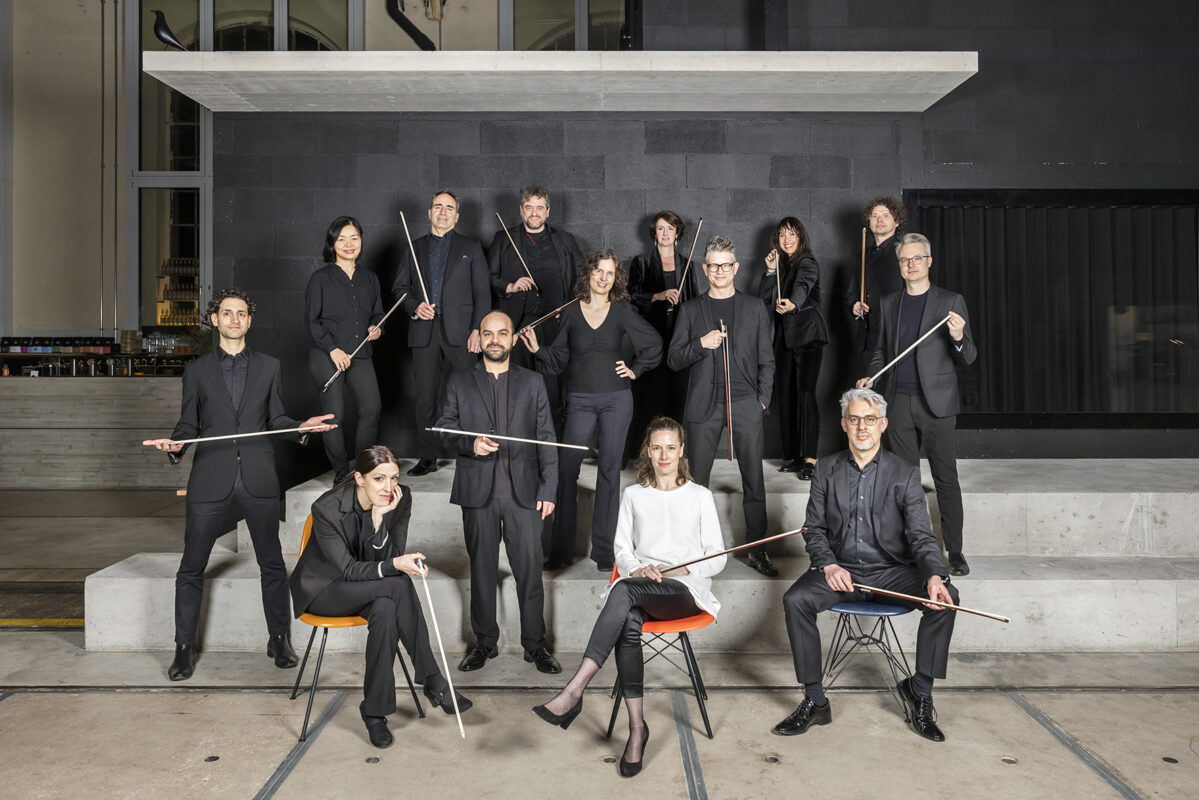Lost voices from the Middle Ages
The singer and harpist Benjamin Bagby has been the director of the Sequentia ensemble since 1977 and is considered a pioneer in the reconstruction of medieval songs. He has now been honored with the REMA Early Music Artist Award in Basel.

Benjamin Bagby is a puzzler. His components are early medieval manuscripts that lie well hidden and long forgotten in monastery archives and libraries. He tracks them down and tries to put them together in close collaboration with musicologists and philologists - always with the question of what it might have sounded like back then in the back of his mind. For once, music research can be experienced very directly. In his project, Bagby deals with Lost Songs not with the well-known Gregorian chant, but with the tradition of the singing narrator outside of the Christian liturgy. He has been on this mission for 30 years. The project began with the reconstruction of the Beowulf epic. This heroic poem probably dates back to the 6th century and is preserved in an anonymous manuscript from the period between 975 and 1025. It is probably the oldest evidence of Old English literature. It gained great popularity through the Lord of the Rings-trilogy by J.R.R. Tolkien.
Bagby tells the story with significantly reduced means. With only singing and a small medieval harp on his knees, he takes on the role of the bardic storyteller and reciter. He describes the core problem of his reconstruction attempts himself on the website of the Lost Songs-As Bagby explains: "A written source can only ever represent one version (and probably not necessarily the best version) of a text that originates from an oral tradition that is constantly in flux." Bagby's puzzles are therefore always hypothetical, and this experimental approach to a lost art creates a fascinating dialog with the past that simultaneously stimulates the imagination.
Heard for the first time in 1000 years
This is also the case in Bagby's latest program in the Lost Songs series. Under the title Monks Singing Pagans (in German: Mönche singen Heiden) brings together texts from very different sources: from spells from the 9th century to the song collection Carmina Burana from the 13th century. A lesser-known, mystical facet of the Middle Ages is brought to life, beyond the juggler kitsch. The Basel audience was able to see this for themselves on March 17 as part of the Freunde alter Musik Basel concert series in the packed Predigerkirche.
Hanna Marti (vocals and harp) and Norbert Rodenkirchen (bone flutes and wooden flutes) created an intimate sound atmosphere together with Benjamin Bagby. It was evident at all times that the music here was above all a means of conveying the texts and stories emotionally and vividly. The translations of the sometimes very curious texts could be read along thanks to subtitles. A Saxon baptismal vow for converted pagans urged them to renounce the devil. An Anglo-Saxon spell against ulcers taught cysts, boils and small boils to fear the devil and a blessing of weeds invoked chervil and fennel as a cure-all.
Also on the program was the performance of several songs whose melodies were reconstructed from a Cambridge manuscript from the early 11th century. A sensation! Because the songs, which are based on the text collection Consolatio philosophiae (Consolation of Philosophy) by the philosopher Boethius were heard again for the first time in 1000 years. This is thanks to musicologist Sam Barrett, who has been working on deciphering the manuscripts at Cambridge University for 20 years. Together with Sequentia, he developed the performance of the songs, which was performed for the first time in 2016. The musicians' practical experience was essential for Barrett to try out different versions, as he explains in an interview.
Over one million records sold
Bagby has now been honored with the REMA Early Music Artist Award for his work to date. In his acceptance speech, he particularly praised the importance of the Schola Cantorum Basiliensis, where he also studied and where he met the singer Barbara Thornton.
In 1977, they founded the ensemble Sequentia together. The two singers, who were also a couple in their private lives, led the ensemble together until Thornton's untimely death in 1998. To this day, there is no fixed core of musicians. Instead, the line-up varies from 2 to 16 musicians, depending on the project. The ensemble's most successful project was the recording of several CDs with music by Hildegard von Bingen in the early 1990s. One of these, entitled Canticles of EcstasyThe album has won international awards (including Disque d'Or and Grammy nominations) and has sold over a million copies worldwide. The voices from the past brought to life by Benjamin Bagby reach not only early music experts, but also a wide audience.








